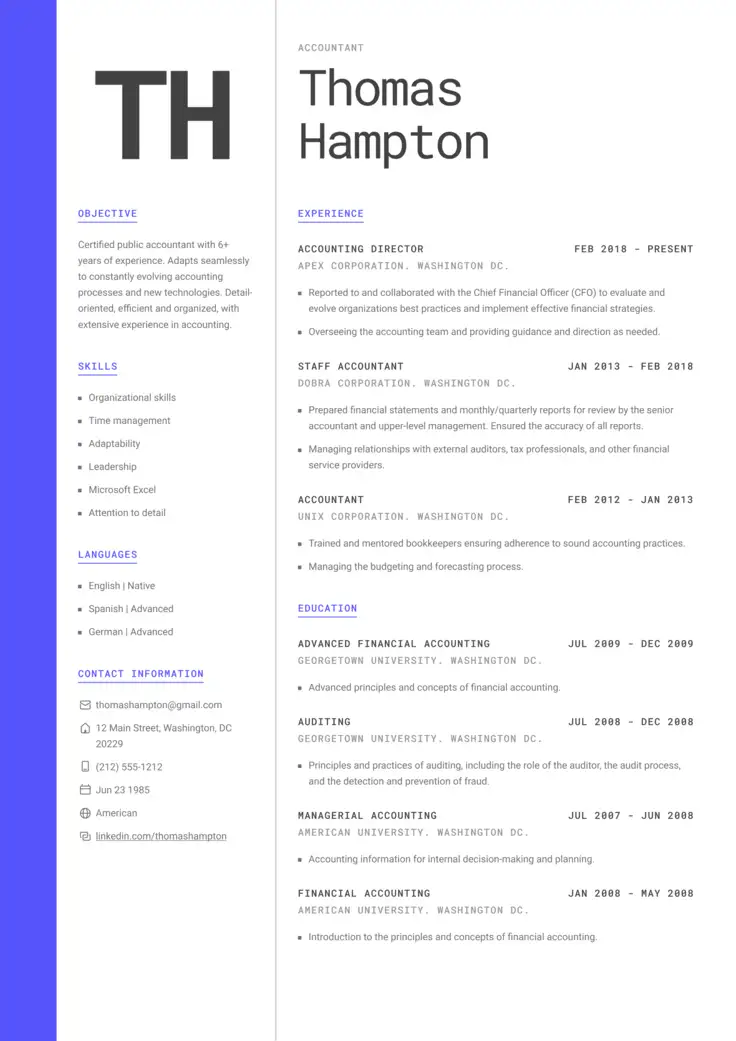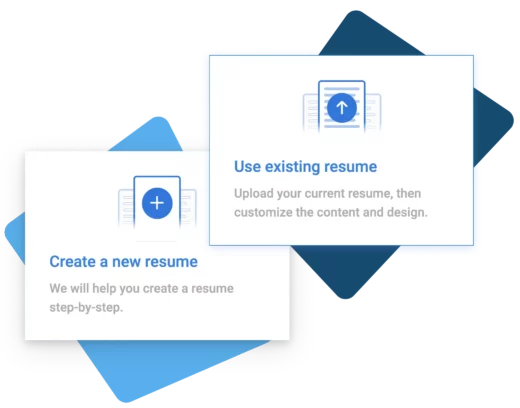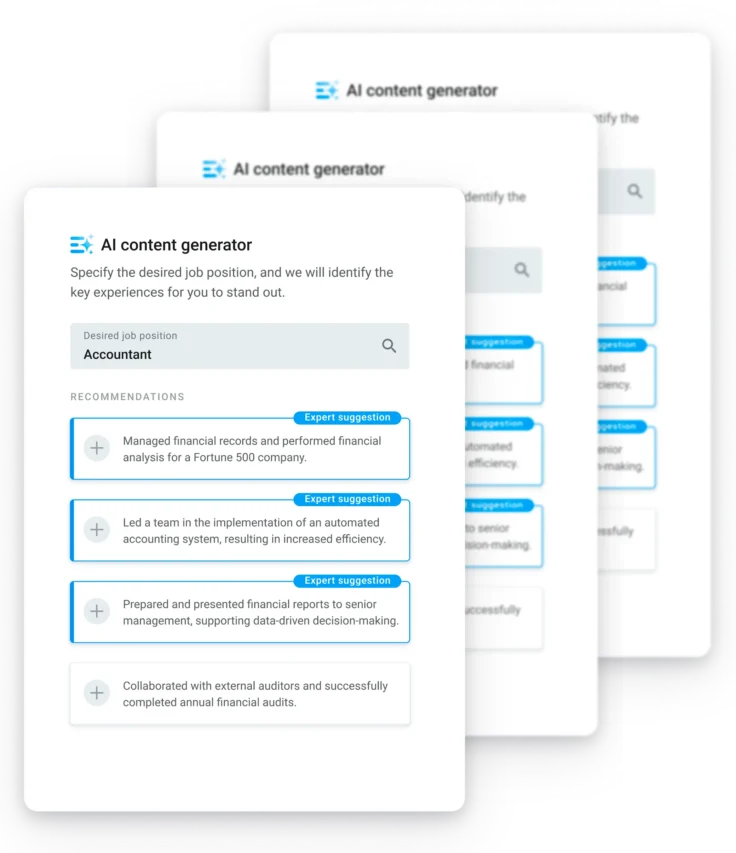How To Write a Resume Objective
Get noticed in just a few words with the perfect resume objective.

It doesn’t matter if you’re using our online resume builder or writing your resume from scratch, knowing how to write a good resume objective is key. As a study by Ladders shows, recruiters spend as little as 7.4 seconds to make a decision.
A strong objective helps you make those seconds count. This is a short note about what you bring to the table. It usually comes right after your contact information.
According to Forbes Magazine, many hiring professionals view the resume objective as crucial. Most of them expect to see one when reviewing applications.
Ready to take a close look at how to write this important section of your resume?
Let’s begin!
What Is a Resume Objective?
It’s a quick intro at the start of your resume. It talks about you and what you can do for a company.
There are three main ways to start a resume: with an objective, a summary statement, or a list of skills. When done right, this part can make you look like the perfect person for the job.
Your objective should show how you can help the company. It tells them why you’re the best choice.
💡Tip
Take advantage of our AI-generated suggestions in our resume builder to come up with detailed ideas for your objective.
Your objective should be short, 3 sentences max. Remember, it’s different from a summary or a qualifications list. It’s about your job goals.
Some people mix up the resume’s objective part with the summary statement or qualifications summary used in other resume formats. A resume objective should explain your goals for the specific role.
Write the Perfect Resume Objective With AI
Writing a strong resume objective can be difficult, especially when you’re trying to tailor it to a specific role. Our AI helps you generate clear, job-focused objective statements based on your experience and target position.
You can choose to instantly generate a completely new resume, or upload and upgrade your existing resume.
When To Use a Resume Objective
What to use depends on the type of resume you have. If you’ve got a lot of experience, you might start with a skills list or a summary. But if you’re looking for your first job or changing careers, an objective is a good idea.
You may use a resume objective if:
- You’re a student looking for a part-time job or a summer job
- You’re a fresh grad starting your career
- You want to change careers
Objectives are especially good for students. If you’re just starting, talk about what you know, any past jobs, and why you like the company. If you’re changing careers, your objective can show how your previous jobs will help in the new one.
Candidates changing careers may use an objective to explain how their previous experience will help them succeed in their new role.

Import Your Resume or Build a New One from Scratch
Give your resume a facelift for free! Import it to our resume builder, choose a template, and freshen it up in minutes.
How To Write a Memorable Resume Objective
Here are some key tips to write a great resume objective statement. Remember, this is just the beginning. Look at our full guide about writing a resume for more advice.
💡Tip
Write a unique objective for every job. Match it to the job type and area you’re applying to.
Use action words when writing your resume objective. Mention how your skills and experience will help you in the new role.
Here are some tips on how to write a resume objective:
- List your skills and show where you used them in past jobs.
- Share what you’re good at. Like being a good listener or helping others.
- Include keywords from the job post, as well as those common in your industry.
- Talk about any training or awards you have related to the job.
- Mention if you’ve done this kind of work before, especially if the new job is similar.
Keep your objective short and to the point. It should match what’s in the rest of your resume.
How To Avoid Common Resume Objective Mistakes
Avoid the most common mistakes when writing a resume. But remember that the objective is the first thing many recruiters see. So, get it right.
- Don’t focus only on your own goals. A Careerbuilder study says 18% of employers might skip your resume if it doesn’t fit their company’s goals.
- Avoid using the same opening for every job. Make each one fit the job you’re applying for.
5 Resume Objective Examples
Now, let’s see some examples in action!
💡Tip
It’s good to see many examples, but make sure you write a unique resume objective for each job and company.
Here are 5 short and interesting resume objective samples:
Entrusted realtor with 5 years of experience in real estate marketing, property acquisition, and sales. Exquisite customer service skills, seeking to use extensive knowledge of [city] sector and outstanding communication and negotiation capabilities to grow [company name] reputation and bottom line.
Licensed elementary teacher with 10+ years of experience in bilingual (English-Spanish), forward-thinking classroom environments; interested in using exceptional organizational skills and dedication to enhance student experience with the use of modern technology.
Professional food service staff leader/waiter seeking management or supervisory position that will leverage my leadership skills to build a strong team in the hospitality sector. Strong focus on customer satisfaction programs and the overall guest/dining experience.
Retail assistant with 7 years of sales experience and exceptional customer service skills; interested in meshing proven floor sales strategies and detailed luxury apparel expertise to serve a proactive, fast-paced e-commerce company in their efforts to promote high-quality products to consumers.
Competent and empathic Registered Nurse targeting a Healthcare facility position in the pediatric sector. Excellent interpersonal skills and extensive patient care training, with a track record of providing quality, comfortable health care for children, teenagers, and adults.
Check out our AI-powered online resume builder for more resume wording examples. Our tool lets you improve your resume instantly or build a new one from scratch, both with a strong, role-specific objective.
When you’re new or changing jobs, your objective is key. It helps you show what you can do in a few words.
ResumeCoach helps job seekers make strong resume objectives. We offer expert tips and real-life examples.
FAQs
Choosing between a resume objective and a summary statement depends on your career stage and goals. A resume objective is ideal for entry-level candidates, recent graduates, or those changing careers, as it highlights your career goals and how they align with the job.
In contrast, a summary statement is better for experienced professionals, focusing on your key accomplishments and skills that demonstrate your value to potential employers. Tailor your choice to best present your qualifications for the position.
To write an effective resume objective, start by clearly stating your career goals and how they align with the job you’re applying for. Keep it concise—ideally one to two sentences. Tailor the objective to each position by incorporating specific keywords from the job description.
Highlight relevant skills, experiences, or achievements that demonstrate your value to the employer. Focus on what you can contribute to the company rather than what you hope to gain from the position.


